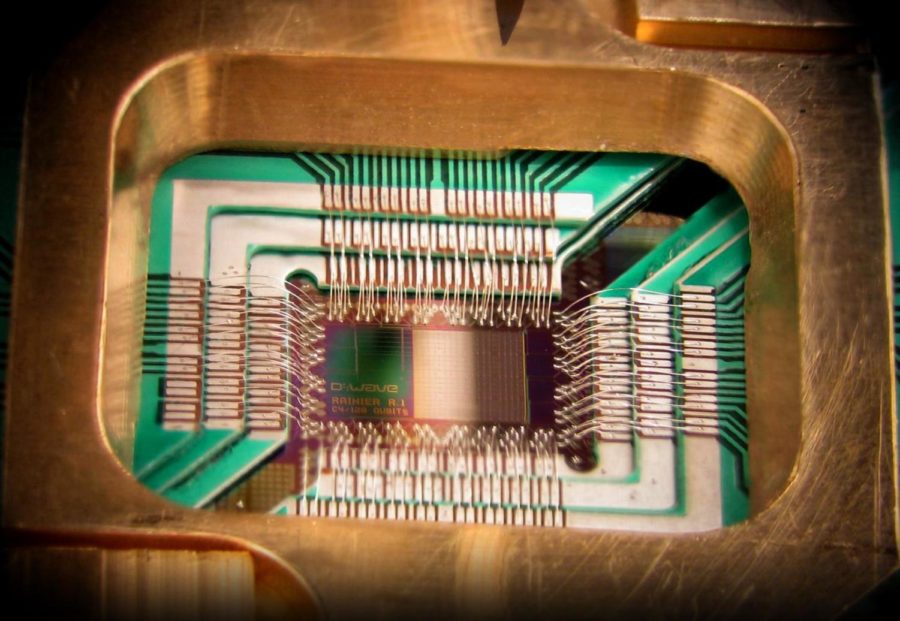Quantum computers advance technology
November 14, 2017
A vast majority of people shy away from anything that is preceded by the term ‘quantum’. If this is Greek to you, don’t worry, a mathematician named Roger Penrose, a man who is generally compared to Einstein and Hawking and people of the like, famously said, “Quantum mechanics makes absolutely no sense”. Let’s hope your brain doesn’t explode. Just like computers have bits, quantum computers have quantum bit, or a qubit. For these qubits to be useful, they must achieve quantum superposition as well as entanglement.
Quantum superposition is the existence of something in two states at once. The most famous example is Schrödinger’s cat. Schrödinger’s cat is a thought experiment, which demonstrates how ridiculous quantum mechanics is when dealing with macroscopic objects. As inferred in the name, the experiment is of a cat which is imprisoned in a steel chamber along with a device attached to a Geiger counter (a device that detects atomic decay) with a tiny amount of radioactive substance; This is so small that there is a possibility that an atom will decay naturally in an hour, and there is an equal possibility that an atom won’t decay naturally in an hour. The contraption is rigged such that if the atom in question does decay, then a hammer is released that shatters a small flask of hydrocyanic acid which would poison the cat. During the hour when the cat is in the box, the cat is said to be in the superposition of two states, alive and dead. If this sounds ridiculous, that’s because it “makes absolutely no sense,” as said before. It’s based on this property that qubits work. Bits are always in one of two states, one or zero. Qubits are always in the superposition of these two states that is they are simultaneously both one and zero. This results in faster calculations since the computing power of each bit has increased.
The other principle is quantum entanglement. This principle has to do with two particles which can communicate with each other instantaneously, regardless of the distance between them. This has strange effects on causality because the laws of nature forbid faster than light travel. This notion is so bizarre that Einstein referred to it simply as “spooky action at a distance”. Clearly, a qubit is far superior to the bit if it can communicate with other qubits instantaneously.
The main issues with quantum computers is that these conditions are very hard to create and even harder to maintain. But, if and when these contraptions become a reality, computing power will increase exponentially. It would be equivalent to reading a library at a time, compared to a book at a time. This would revolutionize computing as we know it. It would render public key ciphers obsolete because of the difficulties normal computers face in factorizing integers and the complete lack of them in quantum computers. In fact, the entire system of cryptocurrency will be at risk in just a few short years.
Google hopes to have a 20-qubit supercomputer by the end of this year, and their next goal is a 49-qubit one. Their end goal is quantum supremacy or the point when quantum supercomputing will surpass the fastest supercomputers. And that future will be here as soon as people know it.







